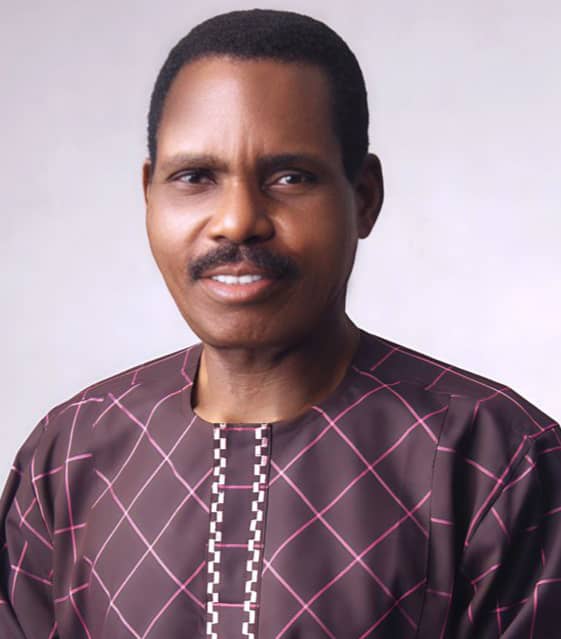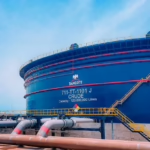The sudden withdrawal of the Nigerian National Petroleum Company Limited as sole off-taker or sole distributor of Dangote Refinery’s Premium Motor Spirit (PMS) popularly known as petrol and the price hike of the product that immediately followed at its filling stations and the outlets of other marketers appeared to have thrown the nation into confusion amidst the prevailing hardship in the land.
However, Nigerians are gradually coming to terms with the new development as analysts in the oil and gas industry explain that the NNPC move signaled the full deregulation of the downstream sector of the industry which involves the production, supply and marketing of petroleum products under a free and competitive market atmosphere as provided for in the Petroleum Industry Act (PIA).
It would be recalled that the driving force of the deregulation policy tagged “Crude for naira and refined product for naira on willing buyer, willing seller basis” commenced a couple of weeks ago on October 1. By this understanding, Dangote refinery is free to sell to any willing buyer and NNPC is therefore relieved of its middle man role.
This development may not have caused any uproar but as NNPC dropped its middle man role, in line with the new dispensation, it also had to drop a vital commitment attached to the role, which was to shoulder the shortfall between the price of fuel it bought from Dangote at N898 per litre and the discounted amount of N765 per litre it sold the fuel to marketers for retail sale to consumers.
That shortfall calculated at N133 per litre was a kind of subsidy to reduce the burden of the high price of Dangote petrol on the citizenry. Many people criticizing the middle man role of the NNPC may not have been aware of this sacrifice which was actually a burden to the national oil company as It was already amounting to billions of naira since Dangote Refinery began supplying petrol mid September. So the new price of petrol is actually not an increase but a reflection of the real cost without the subsidy that NNPC had withdrawn responsibility for.
Nevertheless, before the withdrawal, there were already some issues of concern in the transactions with Dangote Refinery that
NNPC and other stakeholders could not just pretend that all was well. As the lifting of product began, it turned out that the refinery’s preparedness was over-hyped by media publicity. The supply of product allegedly fell far short of the required daily supply of 25 million litres agreed to and it has not substantially improved several weeks after.
Most of the filling stations across the country were yet to access the fuel thereby leading to long and rowdy queues at those that have the product. This challenge is not unusual of a company that just began operating but stakeholders were reportedly embarrassed that as glaring as this shortcoming is, the refinery has continued to maintain that it has enough supply to meet the needs of the nation.
Other reported issues of concern to stakeholders include alleged instability of the price of the product, which reportedly depends on dollar to naira exchange rate that fluctuates almost on a daily basis, thereby making cost projection difficult. It has also been alleged that the management of the refinery has refused to share information on the actual cost of production with stakeholders but this may be their trade secret and it may be argued that they are entitled to it.
After months of cautious planning, the full deregulation of the downstream sector has at last begun. According to Dr. Billis Gillis-Harris, President of the Petroleum Products Retail Outlets Owners Association of Nigeria (PETROAN) it has opened vast opportunities for healthy competition. Many other stakeholders share his view but they are raising concerns on foreign exchange rates
For NNPC, this is the right time, right atmosphere to revamp and reposition and utilize the new opportunities to restore it’s refineries to cutting-edge
competitive engagement. The decline of these refineries has been the biggest challenge to its operations, over the years, that led it to importation imbroglio on which it has incurred severe criticism . Otherwise, it has done well in the upstream and midstream sectors and is the cash cow of the nation, always coming to the rescue.
Many people had given up on the refineries due to their long years of decline. Sceptics have even described them as irreparable and unsalvageable. But there was a time when they were the pride of the nation, with their vast network of pipelines and fuel depots across the country. Should we believe the prophets of doom? The present management of NNPC led by Mr. Mele Kyari think otherwise .
Fortunately, the Petroleum Industry Act has addressed the usual bureaucratic constraints that festered their neglect in the past. Kyari and his team are proving that they can be restored as they keep. Nigerians abreast of ongoing rehabilitation works at the two Port Harcourt refineries which are presently in focus.
Some may argue that various dates set for the commissioning have passed but critical stakeholders in the industry have visited the sites and they have said publicly that what is going on there is a complete overhaul, more than the usual turnaround maintenance (TAM) that was the case in the past. The host communities have also mobilized their leaders to keep watch on happenings there. This is the first time we have heard of 3,000 workers engaged in various activities on a site at the same time.
It would not be out of place to say the current NNPC team is focused and determined to see results. Recall when the company was being pressured to top up it’s equity stake in Dangote Refinery to 20 per cent as earlier envisaged, Mr Kyari declined saying they had a bigger vision. Recently, Minister of State for Petroleum (Oil) Senator Heineken Lokpobiri disclosed that the nation through the NNPC has attracted over $50 billion dollar new investments which will soon be unfolded. This investment portfolio includes a $20 billion deal for the establishment of four new refineries
YINKA ADELANI,
Former Deputy Chairman, Editorial Board of Nigerian Tribune and former Managing Director/Editor in Chief, Third Eye Newspapers.











Leave a Reply